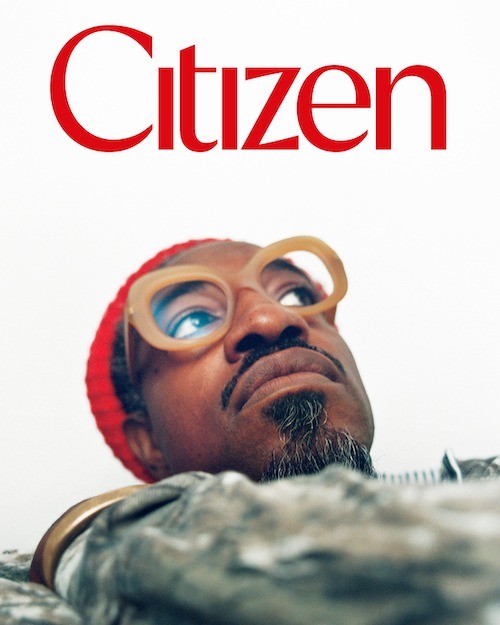Point of View
Featuring Alek Wek, Andrienne Raquel, Becky Akinyode, and Shay Johnson
Photography by Andrienne Raquel
Issue 003

“I feel like my work is for the girls”. – Adrienne
In collaboration with Nike, the Black women behind the making of “A Point of View” on the need to have confidence in your own choices, and what Black women have to uniquely offer to the world of image-making.
Introduction: The adage, an image is worth 1000 words, comes from the ability of images to evoke complex feelings and interpretations and to express clear narratives without and beyond words. However, the term itself is not entirely representative of the truth, as images and the ability of images to communicate a point of view are not best measured by the words they represent but by the ideas they illustrate. Images are an expression of the ideas of those who make them, those who commission them, and those who consume them. The very decision to capture one thing and not another is in itself a representation of the ideas of the decision-makers, and the images we see represent whose ideas we care about–whose ideas get transmitted out. For Issue 003, Citizen partnered with Nike Women to commission a team of Black female creatives and gave them one directive: come with your ideas, talent, and point of view. The images included in this feature result from their ideas and their expressed point of view, which are informed by who they are and where they came from.
In the Q and A that follows, model Alek Wek (AW), photographer Andrienne Raquel (AR), stylist Becky Akinyode (BA), and producer Shay Johnson (SJ) talk about what led them to where they are, drowning out the noise to follow their own paths and the things they are most proud of.

“I am most proud of the fact that I have always been myself.” – Alek
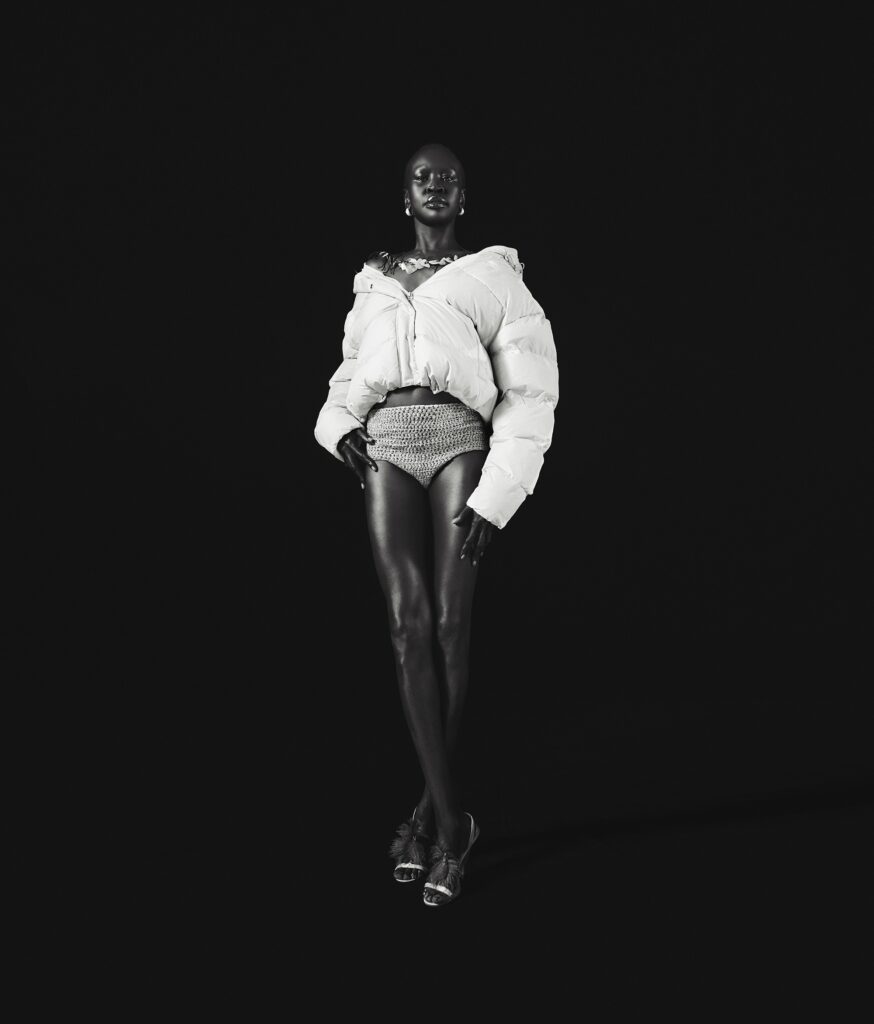
Q: Who are you? What do you do?
AR: My name is Adrienne Raquel. I’m a photographer and image-maker, and I was an art director. I’m all things imagery. That’s me.
BA: My name is Becky. I’m a stylist and a fashion consultant. I’ve started throwing that in there just for shits and giggles.
SJ: Hi, my name is Shay Johnson. I am a creative producer. I make shit happen.
AW: Hi, I am Alek Wek. I am an international model and beyond. I am a Goodwill Ambassador for the UNHCR, the UN Refugee Agency. I am also a former refugee. I lost my father as a child, and I have never seen my country free or independent.
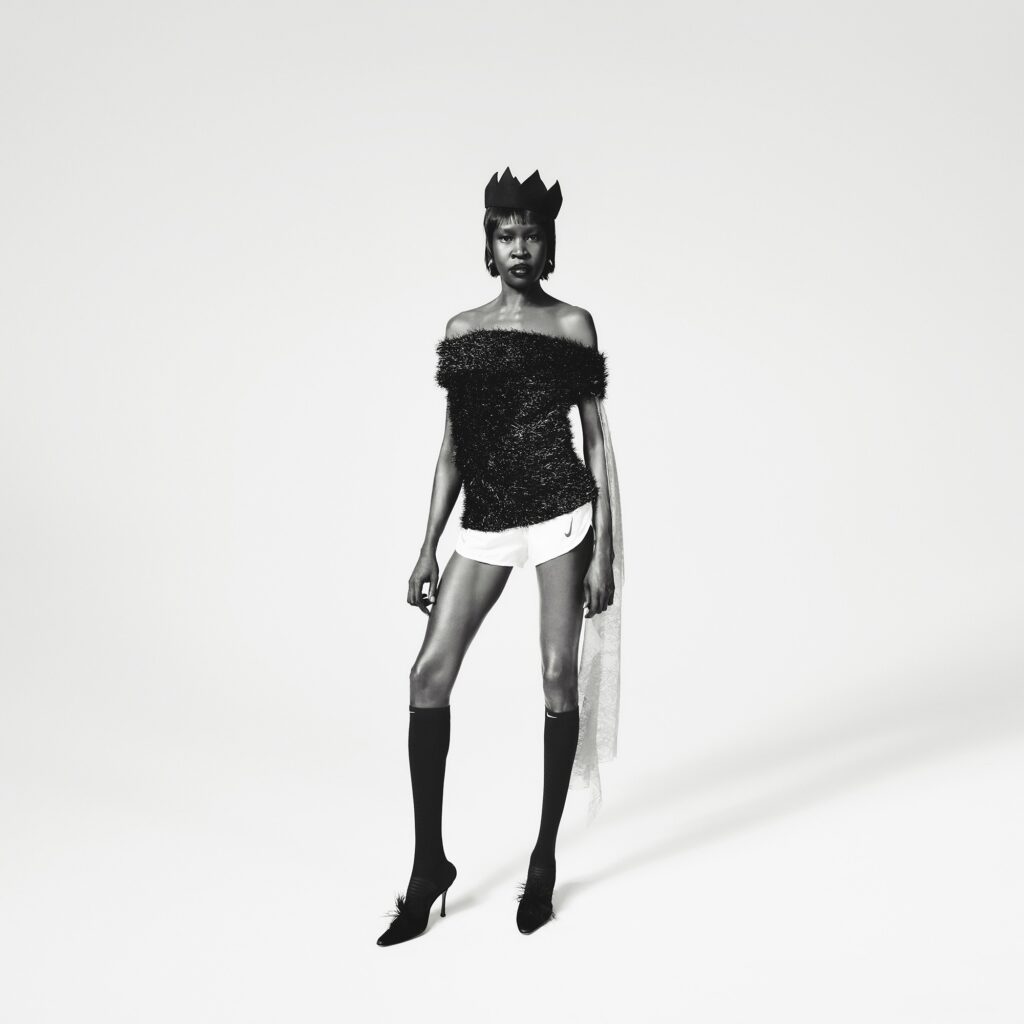
“Then I just woke up one day, and I was like, fuck it. I started my own production company and have been doing it for a year. Honestly, it’s been the best decision I’ve ever made.” – Shay
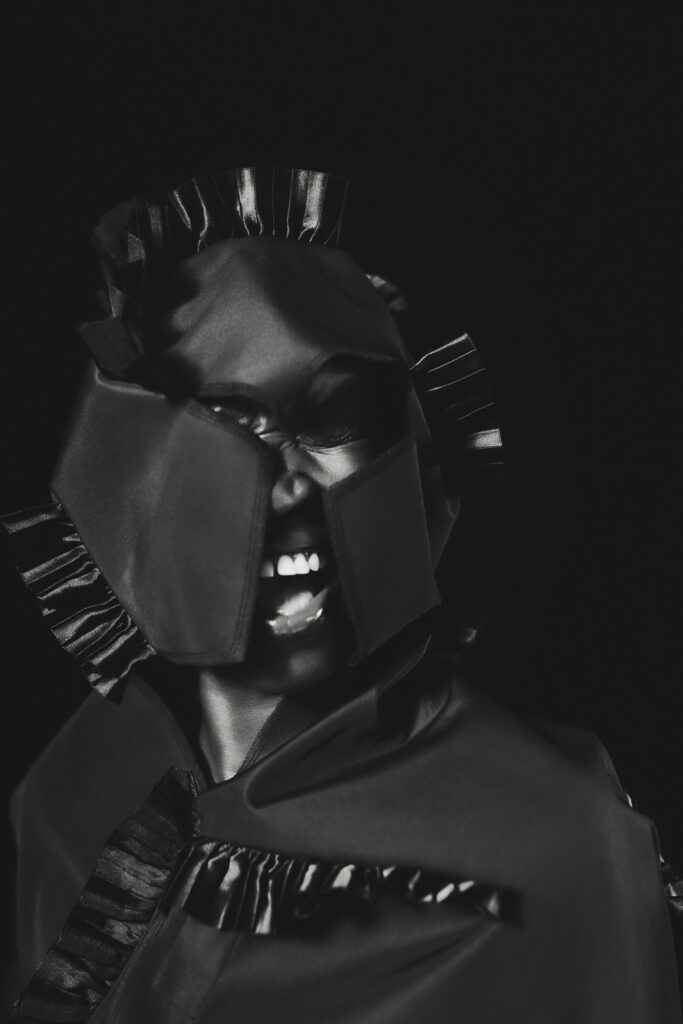
Q: Can you describe your path to your creative work?
AR: I grew up with a lot of different magazines around the house, and on Saturday mornings, my dad would take me to the bookstore, back when Borders [books] was a thing. So, I just naturally developed a love for all things art, fashion, and photography.
I went to the University of Houston’s College of Fine Arts to study oil painting. I entered college during the height of the Great Recession, so after my first year, my parents were like, ‘Girl, what are you doing? You’re going to be broke for the rest of your life.’ So, I switched my major a few times and graduated with a journalism degree. I was in college for five years. It took me forever to finish. During that time, the creative part of me just never really died down, and my father bought me a professional-grade camera, so I started just taking images. When I graduated, I knew I wanted to be in New York. And three weeks after graduation, I drove to New York without a plan. Within a week of arriving, I started interning at Nylon magazine, then Refinery 29, hoping to become a photo editor. I then flipped through a lot of corporate jobs until 2017. At the time, I was working as an art director at Shea Moisture. It was an extremely stable job, and I was making the most income I’ve ever made. But I was truly unhappy. So, one Sunday, I made the decision to quit my job. I went to the office, packed up all my shit, and wrote a resignation email thanking them for the opportunity, stating that Tuesday would be my last day and that I wouldn’t be in the next day, which was Monday.
I had some money saved, and I had a few freelance clients that I was shooting for at the time. I was like, ‘You know what? I’m going to just try this photography thing full-time.’ Since then, things have changed immensely in my life and my creative process. I’m just thankful that I get to wake up and, one, operate on my own schedule and, two, do something that I really love. More importantly, I feel like my work is for the girls. I love shooting and photographing Black women, and now, I’m doing things that I fantasized about when I was younger, like photographing Alek.
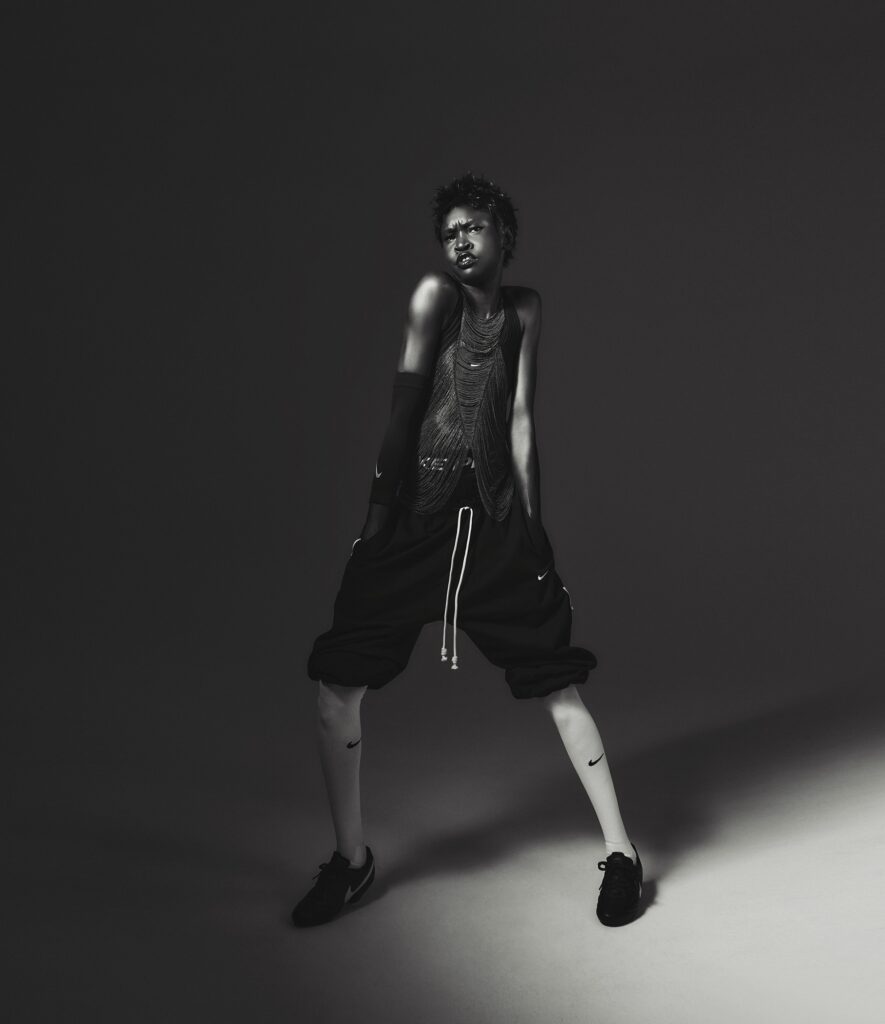
BA: When I was young, my dad had a GQ subscription that came packaged with a year of W [magazine]. I loved all the fashions in W and would study the credits, which is where I first discovered Patti Wilson. I saw she was credited as the stylist for all the covers, googled who she was, and was surprised to find out she was a black woman. I thought, ‘Oh, black people can do this job?’
I left home to attend Georgetown University and majored in international business because my parents insisted that I wouldn’t be able to make it work in fashion. Close to graduation, I actually searched job listings for fashion jobs and discovered that all that was available were unpaid internships or internships that paid a little above minimum wage. With that, I didn’t feel I could convince my parents they were wrong. So, when I graduated in 2011, I went into e-commerce.
I moved to Los Angeles and started working at a fashion e-comm site in the operations department. At work, I would constantly go downstairs to try to learn from the styling team. They would be like, “Why are you here?”
After three years, I still wanted to work in fashion, so I reached out to a mentor I had at Georgetown who told me about an open position in the digital marketing department at Condé Nast. I thought working at Condé would help me infiltrate the fashion side, so I applied, got the job, and moved to New York in 2014. It did not go well at all. It was a hot mess. It ended with me crying outside of the 1 World Trade Building. Before I took that job, I had promised myself that if it didn’t work out, I would have to try to work in fashion. So, I found Patty Wilson’s website and cold-emailed her studio manager. That got me my first proper fashion internship. After working with Patti for six months, a friend told me about a position at Interview magazine, working in the fashion closet. I told another assistant about the opportunity at Interview and my hesitations about leaving Patti. “I’m loyal,” I told him. He said, “Girl, you’re not getting paid!” So, I applied, and I got the job at Interview. From there, I just worked my way up. I assisted other stylists; I was first assistant. I wanted to learn all parts of the business. I was working at the magazine and assisting stylists on set. Interview was different than it is now. I learned a lot. This was the era of Carl Templar and Fabian Baron, but Interview had no budget, so all the assistants did everything. I learned the city, having to do drop-offs and returns. I figured out where all the showrooms were. I discovered different photographers. Then, at the end of 2019, I was like, you know what? I’m no longer assisting.
Then, 2020 came, and the pandemic hit. My mom called me and was like,’ It’s never too late to go work in medicine.’ Later that year, my friend Lynette, who was the co-editor-in-chief of one issue of CR Fashion Book, brought me on as the fashion editor. I was able to style two shoots with the magazine, which were my first published print editorials. Then, I started getting booked on different shoots and doing commercial jobs, and that’s how I got myself in.
I’m just so happy to be doing something that I really like. I realize I’m not good at office jobs. Honestly, I got fired. I just get fired all the time. But I’m so happy that I got fired from Condé Nast because it was getting fired that forced me to try to be a stylist. I needed that push because I was afraid just to follow my dreams.
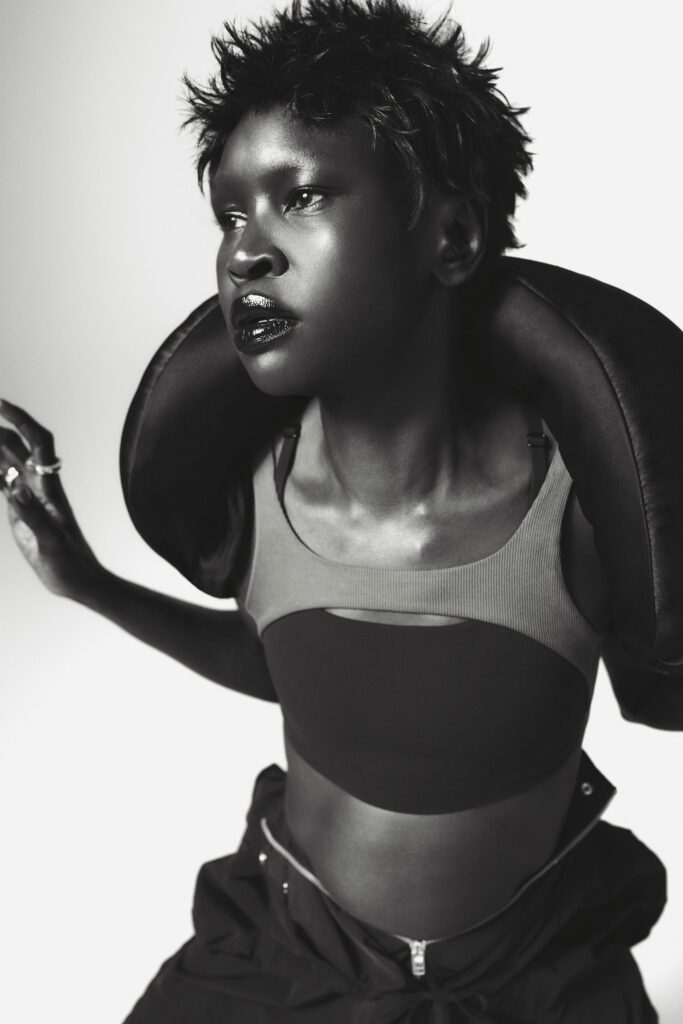
SJ: I’ve always been interested in fashion and art but wanted to be a child psychologist. So, in college, I majored in psychology. Then, in my junior year, I decided that I wanted to pursue a career in fashion and move to New York. Because my parents paid for college, they weren’t willing to give me money to move to New York. So I lived at home, saved for a year, and then moved to New York. In New York, I started interning at Opening Ceremony. It was unpaid. I remember they would give us a MetroCard or $15 a week or something stupid.
I interned for six months, and at the end of what was a styling and production internship, I knew I loved fashion but that I didn’t want to be a stylist. I was more attracted to the logistical side of production. I liked the challenge of figuring out how to make something out of nothing. I liked the idea of bringing everything together and being solution-oriented. I worked at Opening Ceremony for five years. I started as an intern. I left as a creative producer. I then worked at a photo representation agency because I wanted to learn the agency side of things. I left that job right before the pandemic, and once the pandemic hit, I took a little break. Then, my friend Lynette hit me up to work at CR Fashion Book as an executive producer. After that, I worked with a brand called Parade as their director of creative production and photography. When I was on shoots, many people would ask me, ‘Why don’t you have your own company?’ ‘Why are you working for other people?’ There was a bit of fear there for me because if you look at production companies, a lot of them are predominantly white or they have huge teams. It was just me.
Then I just woke up one day, and I was like, fuck it. I started my own production company and have been doing it for a year. Honestly, it’s been the best decision I’ve ever made.
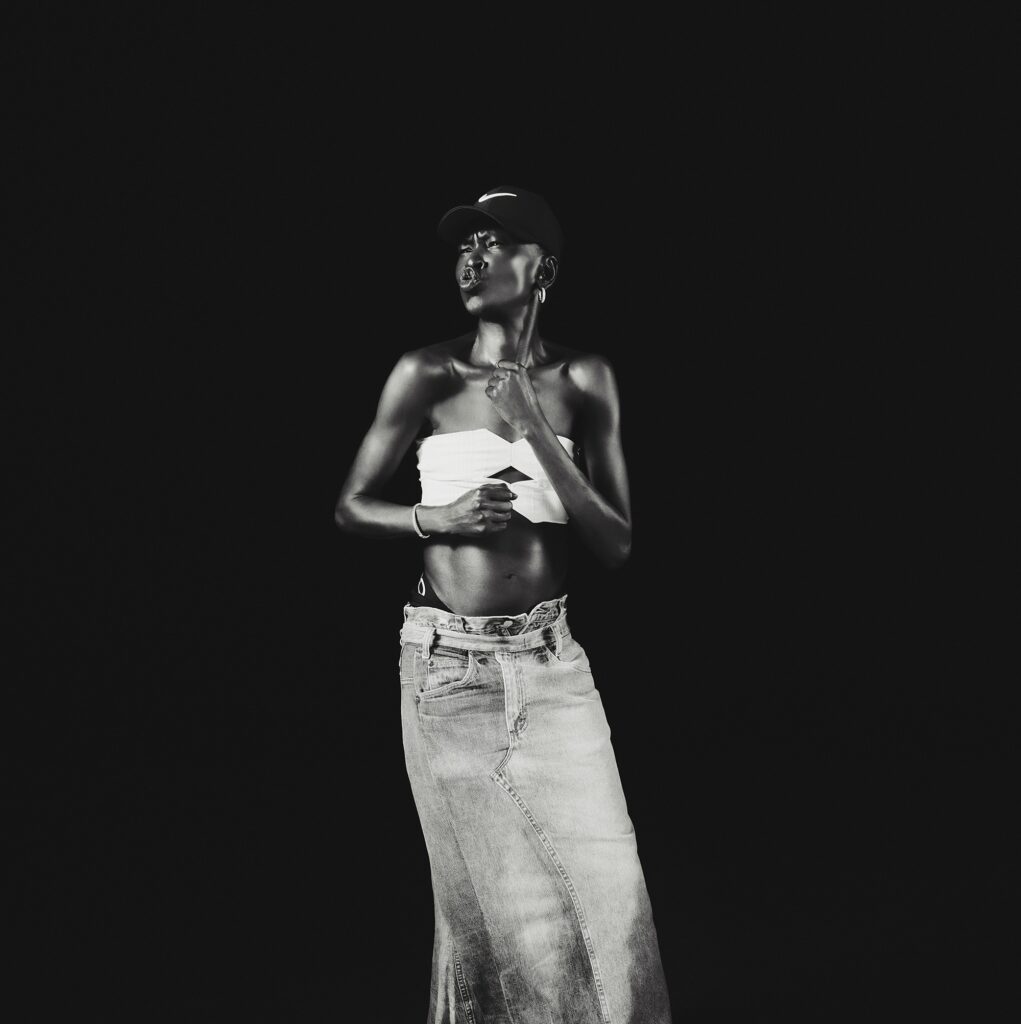
Q: Shay, I think we’re all pretty familiar with what a model, photographer, and stylist is, but what is a producer?
SJ: I think there are two different producers. There’s a creative producer who truly understands the creative and can help with solutions to make a shoot come together. And then there’s also a line producer, someone who is more being directed and who is purely responsible for execution. I’m a creative producer because I understand and can contribute to the creative process. But ultimately, a producer is the person who takes an idea and helps it come to life. A producer should be the person who is furthest behind the scenes. The producer is the glue, in that if you glue together a piece of art, you should never see the glue, but without it, the art could not exist as it does.
Q: Alek, at this point in your career, how involved are you in helping to create images of yourself? How important is it that you own your image and are included in the creative process?
AW: I am 100% involved in the image creation process. I put my hand up, and I come with my hands open wide. I want younger creatives to know that we all need to be a part of the history of the record-making process and that we can’t just play it safe. It’s important to come together, not to waste time, and to tell people how you feel. When I walk into the studio, I know the team there loves me and wants to do their best. I think it’s amazing to give young creatives that chance, so I am also going to do my best.
“I’m just happy that I believed in myself.” – Becky
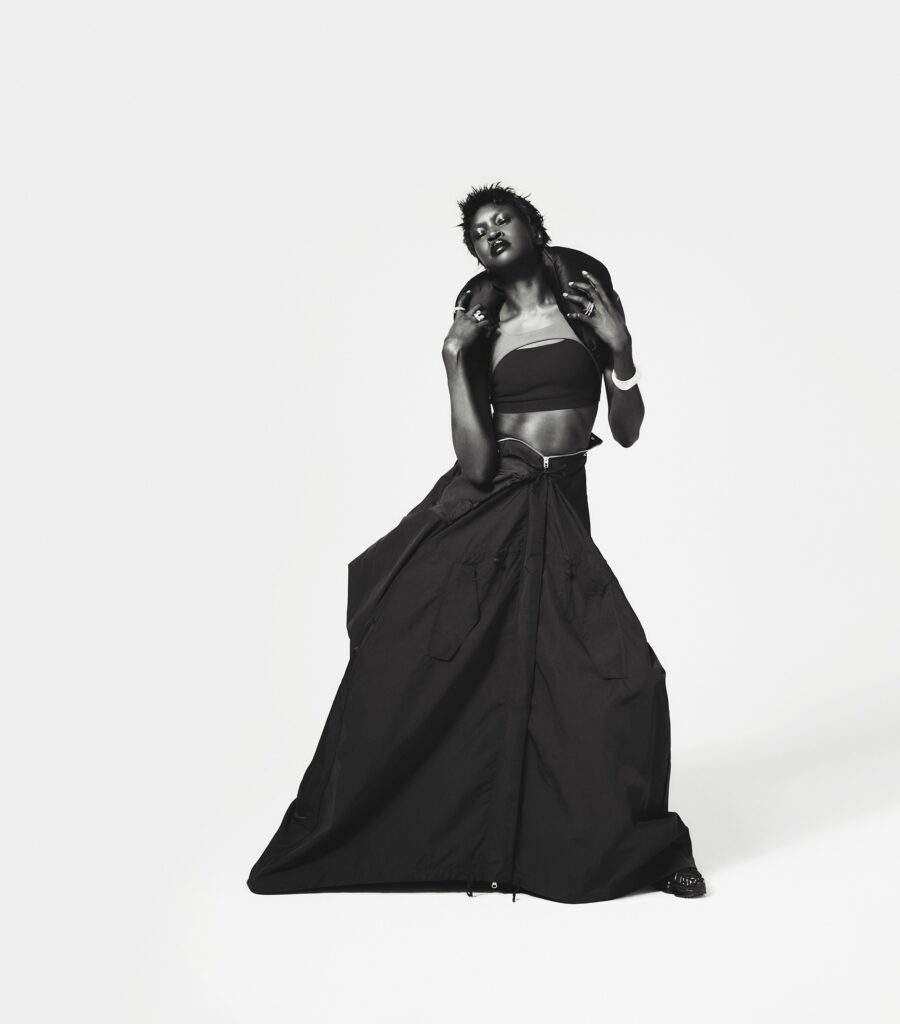
Q: Becky, there seems to be a shared story between you, Shay, and Adrienne, one of parents who weren’t quite sure or supportive of your choices. In hindsight, how do you understand that lack of support, where it came from, and how it affected you?
BA: I understand why they didn’t want me to do it. I’m not upset. I probably would have been like, ‘What are you trying to do?’ I totally get it. Parents just want their kids to be okay. There are these traditional careers that have known salaries attached to them. My parents understood that if you’re a doctor, you’re going to make this much. You can buy a house and be okay. There’s no metric for what a stylist would make. They didn’t even know what a stylist was. Honestly, they still don’t really know what I do. My mom is like, ‘So what do you do again, dress people? So, I have no issues with my parents and how they felt about my decisions. I’m just happy that I believed in myself. I’m sure we all are, and we were like, ‘Okay, we’re still going to do it.’ We all followed our own paths, which I think is the most important thing.
Q: Adrienne, were there any really positive experiences you feel propelled you forward at a pivotal time in your career?
AR: Honestly, just the act of sharing my work and having people truly receive it. I think words of affirmation and moral support go a very long way. So, for me, the moments where I felt the best about the things I was doing were when I received feedback that people truly appreciated my work. Social media played a big role in my success in that way.
Q: Alek, What are you most proud of about the work you have done and the decisions you have made?
AW: I am most proud of the fact that I have always been myself. It has been difficult at times, and I have felt ‘Nobody gets me. ‘ After being in this industry as long as I have been, there are still times that I feel that way. But remaining true to myself has been my proudest decision.
Credits
Photographer: Adrienne Raquel
Stylist: Becky Akinyode
Makeup Artist: Raisa Flowers
Hair Stylist: Jadis Jolie
Creative Producer: Shay Johnson
Talent: Alek Wek via Storm Models
1st Assistant: Nigel Ho Sang
2nd Assistant: Mike Broussard
3rd Assistant: Van Cameron
Digi Tech: Sam Kang
Styling Assistant: Chanti Walker
Styling Intern: Madison Perez
Styling Intern: Isabel Francois
Styling Intern: Kyla Andrea
Tailor: Zunyda Watson
Makeup Assistant: Eunice Kristen
Hair Assistant: India Williams
Production Coordinator: Frankie Lombardo
PA: Rico Abdou

